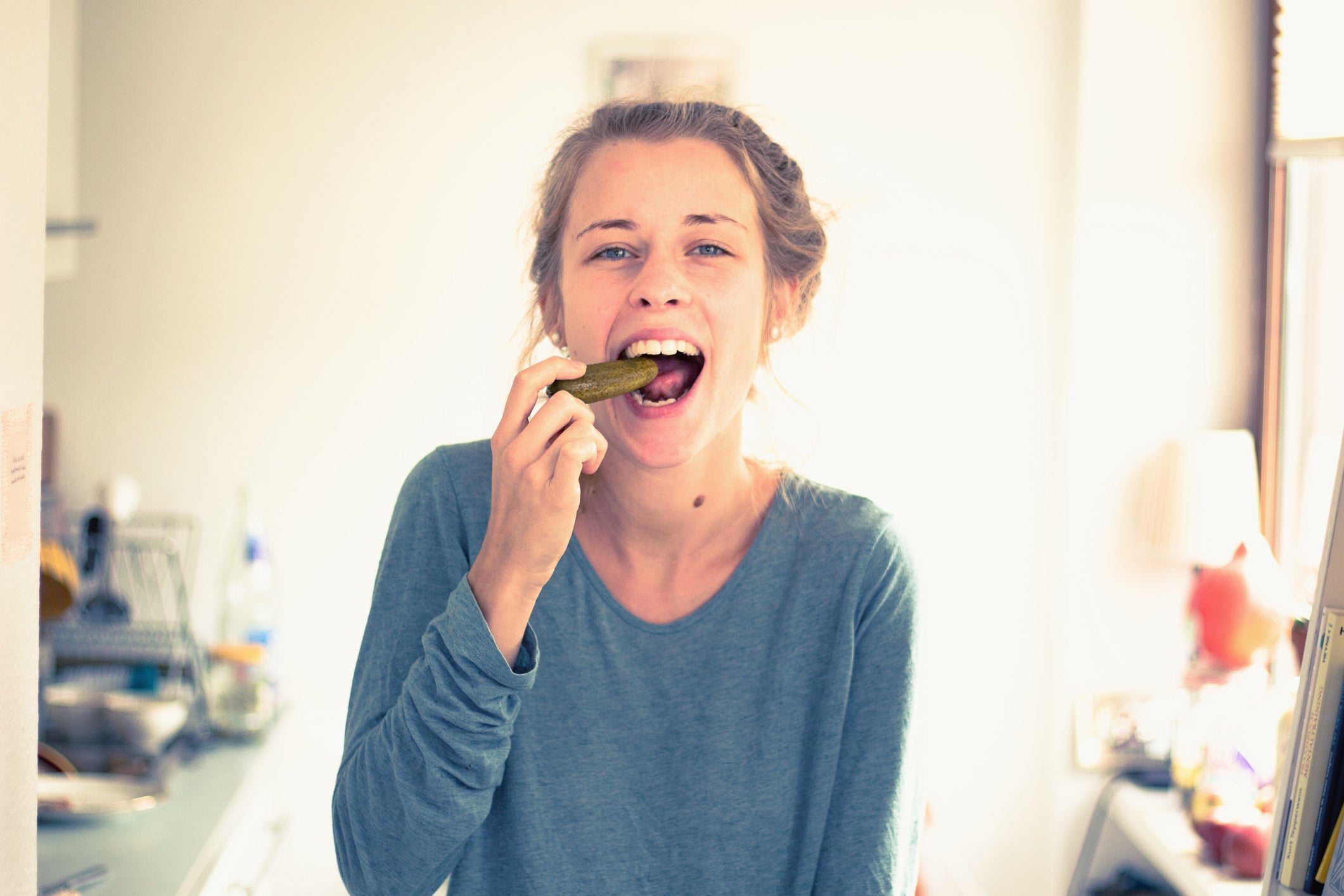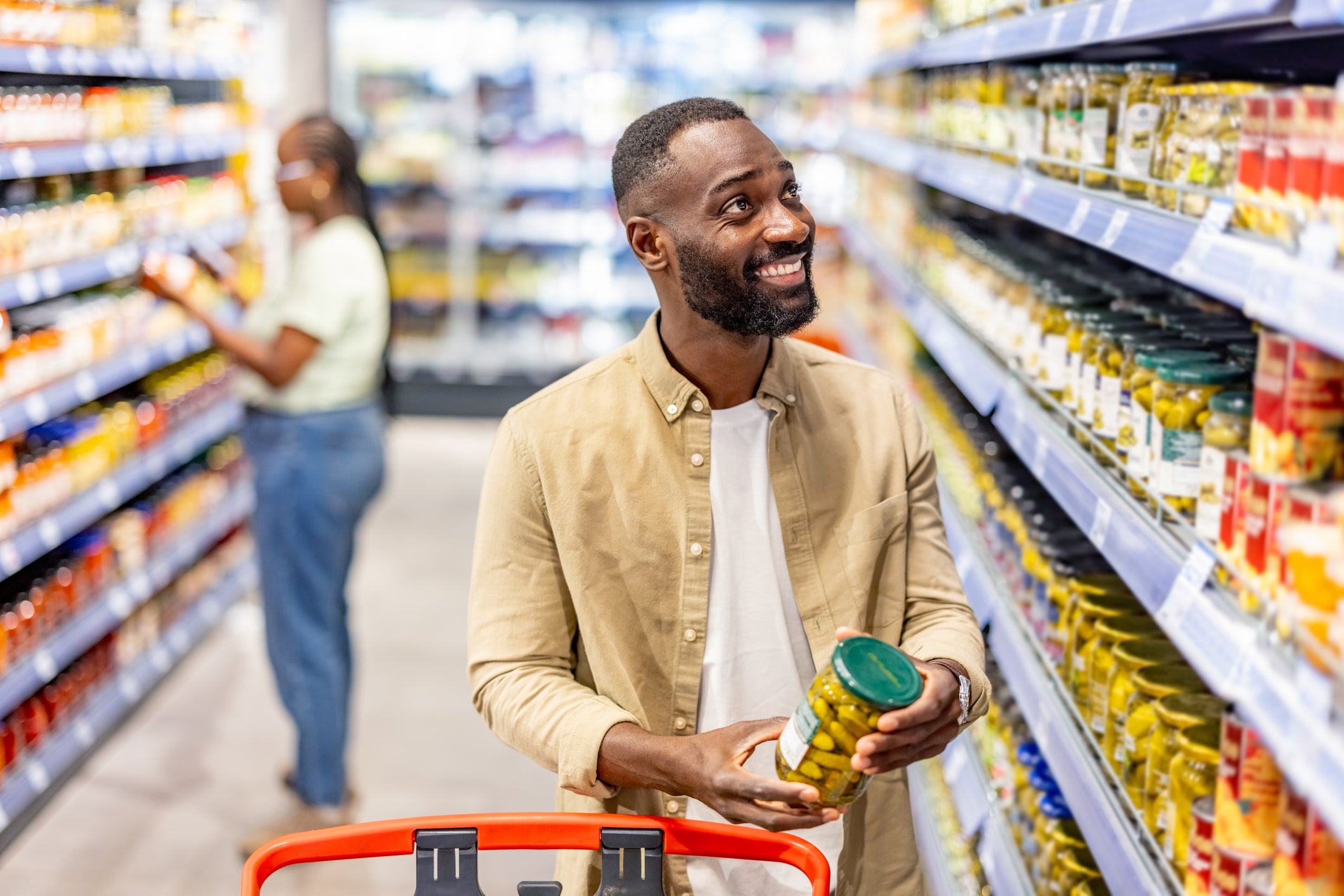Your support helps us to tell the story
From reproductive rights to climate change to Big Tech, The Independent is on the ground when the story is developing. Whether it’s investigating the financials of Elon Musk’s pro-Trump PAC or producing our latest documentary, ‘The A Word’, which shines a light on the American women fighting for reproductive rights, we know how important it is to parse out the facts from the messaging.
At such a critical moment in US history, we need reporters on the ground. Your donation allows us to keep sending journalists to speak to both sides of the story.
The Independent is trusted by Americans across the entire political spectrum. And unlike many other quality news outlets, we choose not to lock Americans out of our reporting and analysis with paywalls. We believe quality journalism should be available to everyone, paid for by those who can afford it.
Your support makes all the difference.Read more
Pickles are an incredibly versatile and deliciously salty snack beloved by many cultures around the world since the time of Cleopatra.
The ancient Queen of Egypt ate pickled cucumbers as a part of her beauty regimen 2,000 years ago.
Now, some 67 percent of U.S. households eat them, chomping through a total of 5.2 million pickles each year, according to the Great Lakes Pickling Company, or around nine pounds per person.
“Pickles are fun, tangy, potentially health-promoting ways of eating cucumbers,” Stanford Medicine behavioral scientist Dr. Marily Oppezzo said in a statement.
They also come with major health benefits, including providing essential vitamins and nutrients. But not all pickles are made equal.

open image in gallery
Pickles are incredibly hydrating. Although the brining process leaches some water out of the cucumbers, they’re still over 90 percent water (Getty Images/iStock)
The briny truth
Those pickles that come off the grocery store shelves and are preserved in vinegar are not the same as the fermented pickles in the refrigerated section.
“While vinegar pickling is a common method, true fermentation in brine enriches them with beneficial probiotics for your gut,” Oppezzo said.
Probiotics are live microorganisms that contribute to a healthy balance of the millions of bacteria that live in our guts, shielding the intestines from unhealthy bacteria tied to anxiety, depression, and neurodegenerative diseases, according to Harvard Medical School.
“Probiotics are good for your brain and gut health,” Cleveland Clinic registered dietitian Devon Peart explained. “Having healthy gut bacteria can minimize symptoms of an irritable bowel, and it can help us digest food and absorb nutrients.”
Gherkins with gusto
And that’s not all the superfood does.
Pickles are incredibly hydrating. Although the brining process leaches some water out of the cucumbers, they’re still over 90 percent water.
They’re also a great source of the mineral potassium, with 165 milligrams per medium-sized pickle. Potassium is an electrolyte that supports hydration and can regulate muscle and nerve function.
That’s why pickle juice is frequently utilized by professional athletes.
“We’ve seen some people resolve cramping in their legs with a shot of pickle juice. Athletes will also often use pickle juice as an electrolyte replacement if they’re not using an oral rehydration solution,” Cleveland Clinic registered dietitian Beth Czerwony said.
The 26 micrograms of vitamin K in pickles has been shown to reduce leg cramping as well, and the vitamin is important for helping your blood clot and keeping bones strong.
Pickles are rich in vitamin A, too, which is a powerful antioxidant known to keep vision clear and promote cell health.
A superfood — but not for weight loss
While cucumbers only have 45 calories and are considered a good veggie for weight loss by themselves, pickles are highly salty.
“One large dill pickle has more than two-thirds of the ideal amount of sodium that an adult should have in a whole day,” Peart noted.
Americans should consume no more than 2,300 milligrams of sodium each day, but most get around 3,300mg, according to the American Heart Association.

open image in gallery
Those pickles that come off the grocery store shelves and are preserved in vinegar are not the same as the fermented pickles in the refrigerated section (Getty Images/iStock)
However, there are some low-sodium pickle options – with a quarter less salt than traditional pickle jars and containers – if you’re really craving the tangy taste and live with high blood pressure or heart issues. Too much salt is linked to worsening both of those conditions.
Still, most people should be alright if they have just a few slices, or limit their overall sodium intake.
Kind of a big dill
Grown in more than 30 states across the country, there are dozens of options to choose from.
They range from sickly sweet to burning hot, with butter pickle slices perfect when slid into peanut butter sandwiches and spicy whole dill spears a great side with a hamburger.
Classic dill pickles are widely considered the most popular kind of pickles in the U.S., gaining a foothold into the market when Eastern European Jewish immigrants brought kosher dill pickles to New York City in the late 19th century.
Whatever you choose at the grocery store, make sure to look for labels that say “naturally fermented” to ensure you’re getting the kind with probiotics.
“We’re even starting to see associations between higher levels of probiotics and lower levels of depression and anxiety,” Peart said, “so anytime you can have more probiotics is good.”

